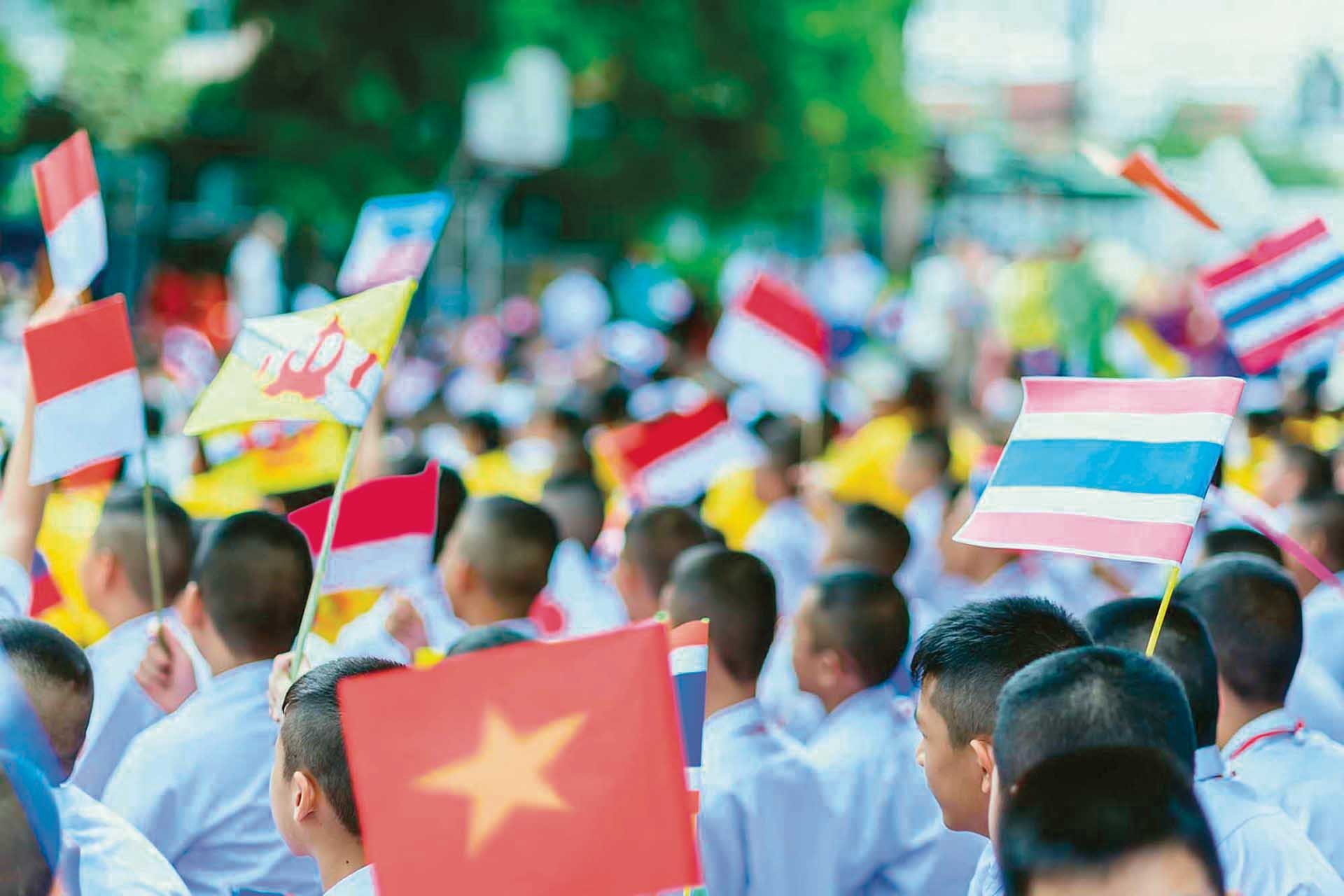
ASEAN - A People-Centered Community
Latest
 |
| the ASEAN Community aimed to build a stronger, more developed ASEAN, toward a better life for the people. (Photo: Getty) |
Leaving no one behind
Established in 2015, the ASEAN Community aimed to build a stronger, more developed ASEAN, toward a better life for the people. The fundamental spirit of ASEAN, with its ASEAN Socio-Cultural Community (ASCC) pillars, is people-centered, leaving no one behind. Over the years, this journey has continued to be realized with the efforts and determination of all 10 members of the Association.
Socio-cultural cooperation continues to play an important role in promoting inclusive, equitable, inclusive and sustainable development in ASEAN, improving people’s lives and morale, thereby contributing to into economic recovery-social stability, strengthening the ASEAN’s solidarity and identity.
Since 2020, despite facing many difficulties and challenges, ASCC has always tried to maintain and promote the spirit of solidarity, as well as improving self-reliance, efforts in industrial cooperation, especially post-pandemic recovery efforts to jointly build a sharing, caring, ready-to-respond society.
This is confirmed with various important documents and declarations recognized by ASEAN Senior Leaders and important information over the years. Activities and initiatives have focused on emergency and disaster response, human resource development, social work promotion, care economy, youth empowerment and development, and welfare. society, education, women’s development, poverty alleviation, public health, sport development, culture and information, climate change. The education and training industry is also creating changes in promoting the application of digital transformation as well as the adaptation of education and training in the new normal context so students can go to school, combine learning training in various forms, towards a generation of global ASEAN citizens.
In 2023, under the leadership of the President of Indonesia with the theme “ASEAN Matters: Epicentrum of Growth”, ASEAN have reached a consensus to focus on socio-cultural cooperation regarding 5 priorities: Strengthening regional health architecture, rural development, biodiversity protection to mitigate the effects of climate change, strengthening labor capacity and protecting migrant workers, as well as ending inclusive development for people with disabilities.
Accordingly, specialized channels under the ASCC pillar have actively developed and completed 4 statements for adoption at the 42nd ASEAN Summit (taken in Jakarta, Indonesia in May) including: ASEAN Leaders’ Declaration on One Health Initiative; The ASEAN Declaration on the Protection of Migrant Workers and Family Members in Crisis Situations; ASEAN Declaration on Placement and Protection of Migrant Fishers and ASEAN Leaders Joint Statement on The Establishment of an ASEAN Villages Network.
Viet Nam’s positive contribution
Over the past time, Viet Nam has always focused on promoting the implementation of the ASCC Blueprint 2025. Specifically, the Prime Minister signed Decision No. 161/QD-TTg dated January 25, 2016 approving the “Project to develop and implement the ASCC Goals Implementation Plan to 2025” (referred to as Project 161), which directs the integration of ASCC’s goals into national programs and projects family.
In 2020, Viet Nam assumed the role of ASEAN Chair and the Ministry of Labour, Invalids and Social Affairs (MOLISA) was the ASCC Chair. In the year marking the 5th anniversary of the official establishment of the ASEAN Community, Viet Nam made many efforts and “scored” with practical contributions to the development of the Community, including the implementation of ASCC’s goals.
MOLISA, as the Chairman of the ASCC in 2020, chaired and led the completion of all documents and declarations to submit to the 36th and 37th ASEAN Summit, including 2 important Declarations, namely the ASEAN Declaration on Human Resources Development for the Changing World of Work and the Ha Noi Declaration on Strengthening Social Work Towards Cohesive and Responsive ASEAN Community.
In addition, the Mid-term Review Report on the implementation of the ASCC Blueprint 2025 was also presented to the 37th ASEAN Summit. This is an important result and milestone of ASCC in 2020.
Following that spirit, over the years, in addition to supporting and implementing the Community’s priorities set by the ASEAN Chair, Viet Nam continues to focus on implementing the Master Plan of ASEAN’s Community Vision 2025. Viet Nam is among the leading countries in integrating the implementation of the Blueprint’s objectives into national programs and projects through Project 161. Results of the implementation of Project 161 in particular and the ASCC Blueprint 2025 in Viet Nam has so far achieved many achievements, reflected in various areas such as escaping poverty; ensuring access to water and safe sanitation of all families; increasing maternal and infant mortality and ensuring that school-age children attend school; promoting decent work; increasing environmental protection… Such results have greatly contributed to the overall results of Southeast Asia and enhanced ASEAN’s images in Viet Nam.
Those efforts clearly demonstrated Viet Nam’s commitment to the ASEAN Community, specifically to the ASCC, not only in terms of guidelines, orientations and policies, but also towards specific actions to be implemented at the national and regional levels.













